- Home
- Carolyn Wells
Patty's Fortune Page 12
Patty's Fortune Read online
Page 12
CHAPTER XII
MIDDY
“Whither away, Patty?” asked Nan, as Patty came downstairs one brightmorning in late October, hatted and gowned for the street.
“I’m going out on multifarious errands. First, I shall make a certainflorist I wot me of, wish he had never been born. What _do_ you think? Iordered pink chrysanthemums and he sent yellow? Could villainy gofurther? And then I’ve some small shopping to do. Any errands?”
“No, unless you stop in at the photographer’s and see if my pictures aredone.”
“All right I will. By, by.”
Patty got into the big car, with its open top, and drew in long breathsof the crisp autumn air.
“To Morley, the florist’s, first, Martin,” she told the chauffeur.
As they drove down Fifth Avenue, Patty nodded to acquaintances now andthen. She was very happy, for she was planning a pleasant outing for herclub of working girls, and it greatly interested her. She had long agogotten over her foolish notion about the stage, and was now able tolaugh at the recollection of her silly idea. But she occasionally sangat a concert for charity or for the entertainment of her friends, andher voice, by reason of study and practice, was growing stronger andfuller.
When she reached Morley’s the florist’s doorman assisted Patty from thecar, and she went into the shop.
Though she had threatened to reprove him severely for his error aboutthe flowers, Patty was really very polite, and merely called hisattention to the mistake, which he promised to rectify at once. Then,selecting a small bunch of violets to pin on her coat, Patty went out.
The doorman, who had been looking in the window, to see when shestarted, sprang to attention, and then, as Patty stepped toward her car,she stood stock-still in amazement. For there, on the back seat, sat asmiling baby, a chubby rosy-cheeked child about two years old.
“Why, you cunning Kiddy!” exclaimed Patty, “where in the world did youcome from? What are you doing in my car?”
The baby smiled at her, and holding out a little white-mittened hand,said: “F’owers? F’owers for Middy?”
“Who is she, Martin?” asked Patty of the chauffeur. “How did she gethere?”
Martin looked around. The car was a long one, and he had not turned tolook back since Patty went into the shop.
“Why, Miss Patty, I don’t know! Maybe some of your friends left her?”
“No, of course, no one would do that, and besides, I don’t know thechild. Who are you, baby?”
“Middy,” said the little one. “I Middy.”
“You are, are you? Well, that doesn’t help much. Who brought you here,Middy?”
“Muddy.”
“Muddy, Middy. Your vocabulary seems to be limited! Well, what shall Ido with you?”
The baby gurgled and smiled and reiterated a demand for “f’owers.”
“Yes, you may have the flowers,” and Patty gave her the violets, “but Idon’t understand your presence here.”
Apparently it mattered not to the baby what Patty understood, and shesmelled the flowers with decided evidences of satisfaction.
Patty turned to the doorman, who had followed her from the shop.
“What do you make of it?” she said.
The man stared. “I don’t know, ma’am. There was no baby in the car whenyou arrived here.”
“That there was not,” agreed Patty. “Well, how did she get there?”
“I’m sure I’ve no idea, ma’am.”
“Weren’t you here while I was in the store?”
“Yes, ma’am, but I was looking in at you, so’s to be ready to open yourcar door as soon as you came out.”
“Well, I never heard of anything so queer. I wonder what I’d better do.”
“Shall I call a policeman, ma’am?”
“Policeman? Gracious, no! This is a nice child. See how pretty she is,and how well dressed.”
“Yes, ma’am.”
Patty looked up and down the street, but saw no one whom she couldconnect with the baby’s presence. A policeman drew near, and hisexpression was questioning. He hadn’t realised that there was a strangebaby in the case, but he saw the lady was in a dilemma of some sort, andhe was about to ask why.
But Patty jumped in the car beside the child, and said, “Home, Martin,”so quickly, that the policeman wandered on without a word.
“It’s ridiculous to take you home, baby,” Patty said; “but what can I dowith you?”
“F’owers,” said the little voice, and the stranger offered them to Pattyto smell.
“Yes, nice flowers,” returned Patty, absently, as she stared hard at hervisitor. “Who are you, dear?”
“Middy,—des Middy,” and the little face dimpled in glee.
“Well, Middy, you’re one too many for me!” and they went on toward home.
“Oh, Nan!” cried Patty, as she took her new friend indoors, “look who’shere!”
“Who is she?” asked Nan, looking up from her book, as Patty depositedthe small morsel of humanity on a sofa.
“Dunno. She was wished on me while I was in at Morley’s. Came out of theshop to find her sitting bolt upright in the car.”
“Really? Did somebody abandon her?”
“Can’t say. She wasn’t there,—and then, she _was_ there! That’s all Iknow. Want her?”
“Certainly not. But what are you going to do with her?”
The stranger seemed to sense a lack of welcome, and putting up apathetic little red lip, said in tragic tones. “Middy ’ants Muddy.”
“You poor little thing!” cried Patty, catching her up in her arms. “Didyour mother put you there?”
“Ess, Muddy frowed Middy in au’mobile. Middy ’ant do home.”
“Where is your home?”
The baby’s face smiled beatifically, but the midget only said “Vere?”
“Don’t you know yourself?” and the baby shook her head.
“It’s clear enough, Patty, somebody has abandoned the little thing. Howawful! And such a pretty baby!”
“And beautifully dressed. Look, Nan, see the little white kid shoes, andfine little handkerchief linen frock. And her cap is allhand-embroidered.”
“And her coat is of the best possible quality. Look at the fineness ofthe cloth.”
“Well, what about it?”
“I can’t make it out. If it were a poor child, I’d think it a case ofabandonment. Oh, Patty, I’ll tell you! Somebody kidnapped a rich child,and then they became frightened, and slipped her into your car to savethemselves from discovery.”
“Why, of course that’s it! How clever you are, Nan, to think it out! Forshe is a refined, sweet baby, not a bit like a slum child.”
This was true. The dark curls that clustered on the baby’s brow werefine and soft, her little hands were well cared for, and her raiment wasimmaculate and of the best. But they searched in vain for any name ordistinguishing mark on her clothes. Even the coat and cap had no maker’stag in them, though it was evident that there had been.
“See,” said Patty, “they’ve ripped out the store tag! The kidnappers didthat. Did the bad mans take you, baby?”
“No, Muddy b’ing baby. Des Muddy.”
“Muddy is, of course, her mother. Now, we know her mother never put thechild in the car, so I guess we can’t depend on her story.”
“Ess,” and the little one grew emphatic. “Muddy did b’ing Middy. An’Muddy _did_ put Middy in au’mobile.”
“Well, I give it up. She seems to know what she’s talking about, but Ido believe she was kidnapped. We’ll have to keep her for a day or two.It’ll be in the papers, of course.”
“Perhaps she’s hungry, Nan; what ought she to eat?”
“Anything simple. Ask Louise for some milk and crackers.”
But Middy did not seem hungry. She took but a sip of the milk and a merenibble of the cracker. She seemed happy, and though she beamedimpartially on everybody, she said
little.
“She ought to have something to play with,” decreed Patty. “There isn’ta thing in the house. I ransacked the attic rooms for that lastmissionary box. I haven’t any favours or toys left. Nan, I’m going totake her out to buy some, and maybe we’ll meet her distracted motherlooking for her.”
“Maybe you won’t! But go along, if you like. I’ll go with you as far asGordon’s.”
Putting on the baby’s wraps again, Patty started off. The child wasdelighted to go in the car.
“Nice au’mobile,” she said, patting the cushions.
“Hear her patronising tone!” laughed Nan. “Middy have au’mobile athome?” she inquired.
“No, no,” was the reply as the tiny white teeth showed in a sunny smile.
“You’re a lovely-natured little scamp, anyway,” declared Patty, huggingthe morsel to her, and Middy crowed in contentment.
Patty took her to a large toyshop. As they entered, a clerk came forwardto wait on them. “What can I show you?” he asked.
“Wait a minute,” said Patty. “Let the baby choose. Now, Middy, what doyou like best?”
The child looked around deliberately. Then, spying some dolls, she madea rush for them. “Middy ’ant Dolly-baby! Ess!”
“Very well, you shall have a dolly-baby. This one, or this one?”
“No. ’Reat bid one! See!”
She pointed to the largest doll of all, a very magnificent affair,indeed.
“Oh, that’s too big for a little girl like Middy! Have a dear little,cunning, baby doll.”
But, no, the child was self-willed, and insisted on the big doll.
“Well,” said Patty, “I suppose she might as well have it,” so the bigdoll was put into the outstretched little arms, and peace reigned.
“An’ a dolly vadon,” the small tyrant went on. This was translated tomean dolly wagon, by the clerk, who was more versed than Patty in babylanguage.
“Good gracious, sister! You’ll bankrupt me!” and Patty inquired theprice of the little coaches.
Moreover, the wilful purchaser declined all but the best and biggest,and when it was ordered sent home, Patty hurried her charge out of thestore lest she demand further booty.
With the big doll they went back home, and Patty set herself to work toget further knowledge of the child’s antecedents.
But here efforts were vain. She learned only the age of her guest and noother statistics.
“Mos’ two ’ears old,” Middy declared she was, but except for that, noinformation was forthcoming.
Inquiries regarding her father brought only blank looks.
“Haven’t you any father at all?” urged Patty.
“No; no fader. Poor Middy dot no fader!”
But the bid for sympathy was so clearly insincere, and the accompanyingsmile so merry that Patty concluded she had no father of herrecollection.
It soon transpired that the wily mite called for sympathy on alloccasions. “Poor Middy,” was her constant plea, if she wanted anything.
“Poor Middy hung’y,” she said at last, and this time she eagerlywelcomed the milk and crackers.
“Now, Poor Middy s’eepy,” she announced, when her meal was over, andwillingly she allowed Patty to bathe her hands and face and put her torest on the couch in the living-room.
“Did you ever see anything so pretty?” exclaimed Patty to Nan, as thelatter returned. “She’s been sleeping nearly two hours. See her littlehand, just like a crumpled rose-leaf. What _will_ Dad say?”
They let the baby sit up until Mr. Fairfield’s arrival, anxious to knowhis opinion of the strange circumstance.
“Well, bless my soul!” he exclaimed. “Patty, what queer jinks will youcut up next?”
“But, Dads, it surely wasn’t my fault! It was none of _my_ doing!”
“Of course not, child. I expect you’re one of those cut out for queerhappenings. There are such people, you know.”
“Well, but what do you think about it? How do you explain it? Do youthink, as Nan does, that kidnappers put her in the car, because theywere frightened for their own safety, if found with the little thing?”
“Not altogether likely. I think it’s more probable the mother abandonedit.”
“Oh, how could she! That angel child. She _is_ a beauty, isn’t she,Daddy?”
“Very pretty, very pretty, indeed. But a problem. The end is not yet,Pattykins. I’m sorry this has happened. There’s been no kidnapping. Ifthere had it would have been in the papers. This is, it seems to me, adeep laid plot of some sort. Well, we must await developments.”
Patty went away with Louise to make the baby a bed for the night, in herown dressing-room. With pillows and some guarding chairs, theyimprovised a crib, and the process of undressing the baby proved such agala time that the whole house rang with merriment.
As they took off one little white shoe, a folded paper dropped out. Itwas addressed to Patty herself,—but with a feeling of apprehension asto what it might contain, she ran downstairs with it, before she lookedinside at all.

 The Deep Lake Mystery
The Deep Lake Mystery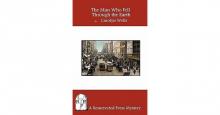 The Man Who Fell Through the Earth
The Man Who Fell Through the Earth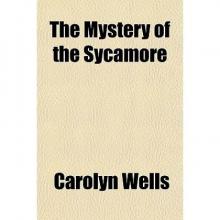 The Mystery of the Sycamore
The Mystery of the Sycamore The Mystery Girl
The Mystery Girl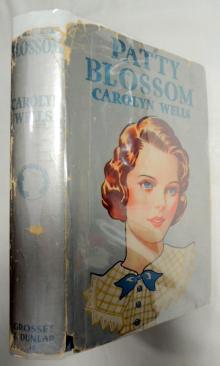 Patty Blossom
Patty Blossom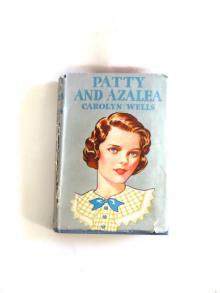 Patty and Azalea
Patty and Azalea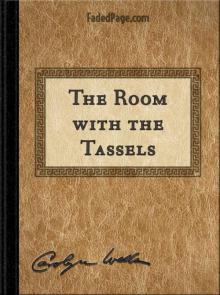 The Room with the Tassels
The Room with the Tassels The Vanishing of Betty Varian
The Vanishing of Betty Varian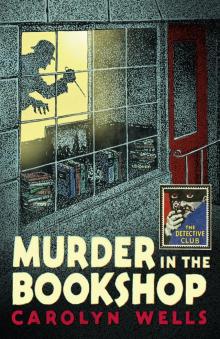 Murder in the Bookshop
Murder in the Bookshop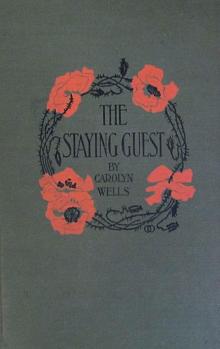 The Staying Guest
The Staying Guest The Curved Blades
The Curved Blades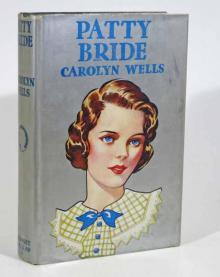 Patty—Bride
Patty—Bride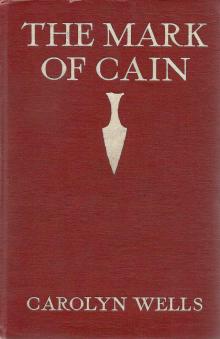 The Mark of Cain
The Mark of Cain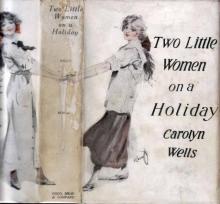 Two Little Women on a Holiday
Two Little Women on a Holiday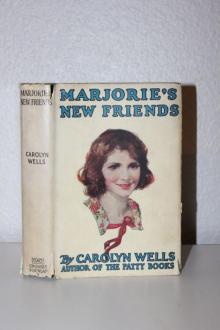 Marjorie's New Friend
Marjorie's New Friend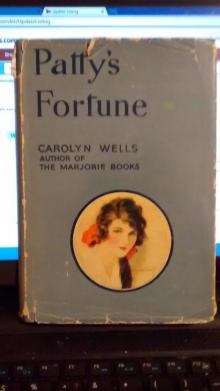 Patty's Fortune
Patty's Fortune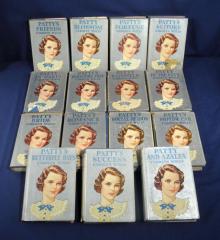 Patty's Social Season
Patty's Social Season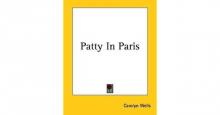 Patty in Paris
Patty in Paris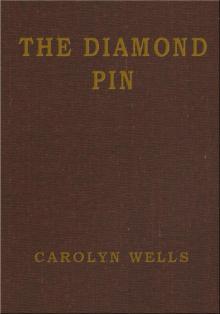 The Diamond Pin
The Diamond Pin The Come Back
The Come Back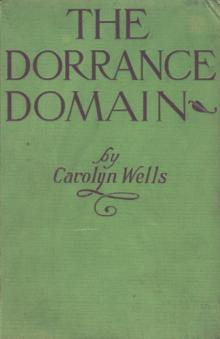 The Dorrance Domain
The Dorrance Domain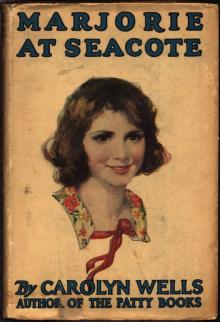 Marjorie at Seacote
Marjorie at Seacote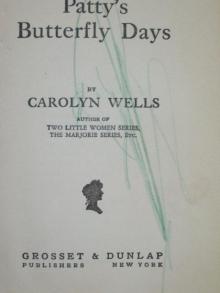 Patty's Butterfly Days
Patty's Butterfly Days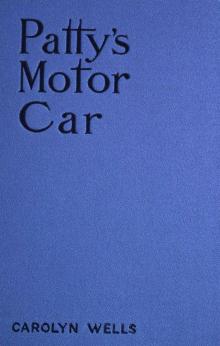 Patty's Motor Car
Patty's Motor Car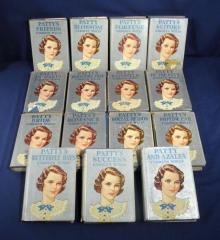 Patty's Success
Patty's Success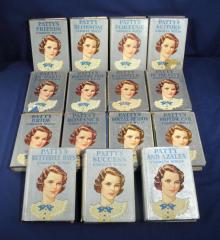 Patty's Suitors
Patty's Suitors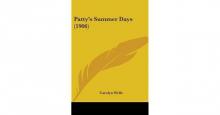 Patty's Summer Days
Patty's Summer Days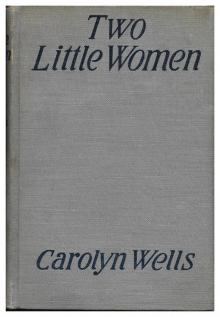 Two Little Women
Two Little Women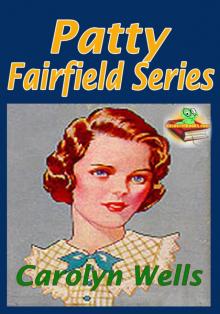 Patty Fairfield
Patty Fairfield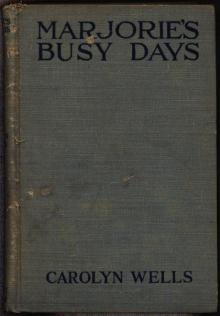 Marjorie's Busy Days
Marjorie's Busy Days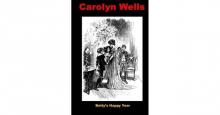 Betty's Happy Year
Betty's Happy Year In the Onyx Lobby
In the Onyx Lobby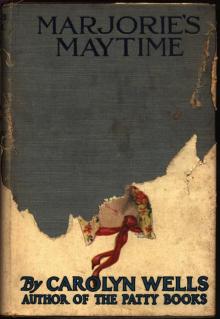 Marjorie's Maytime
Marjorie's Maytime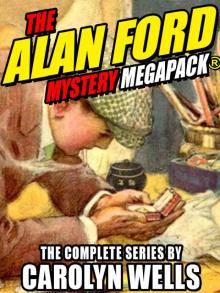 The Alan Ford Mystery MEGAPACK®
The Alan Ford Mystery MEGAPACK®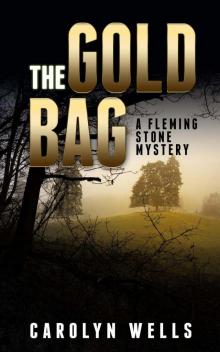 The Gold Bag
The Gold Bag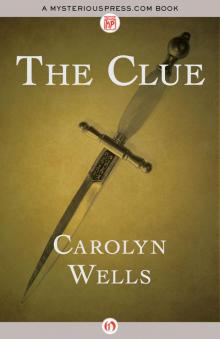 The Clue
The Clue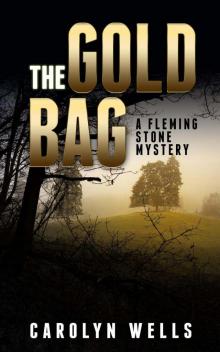 The Gold Bag : A Fleming Stone Mystery
The Gold Bag : A Fleming Stone Mystery